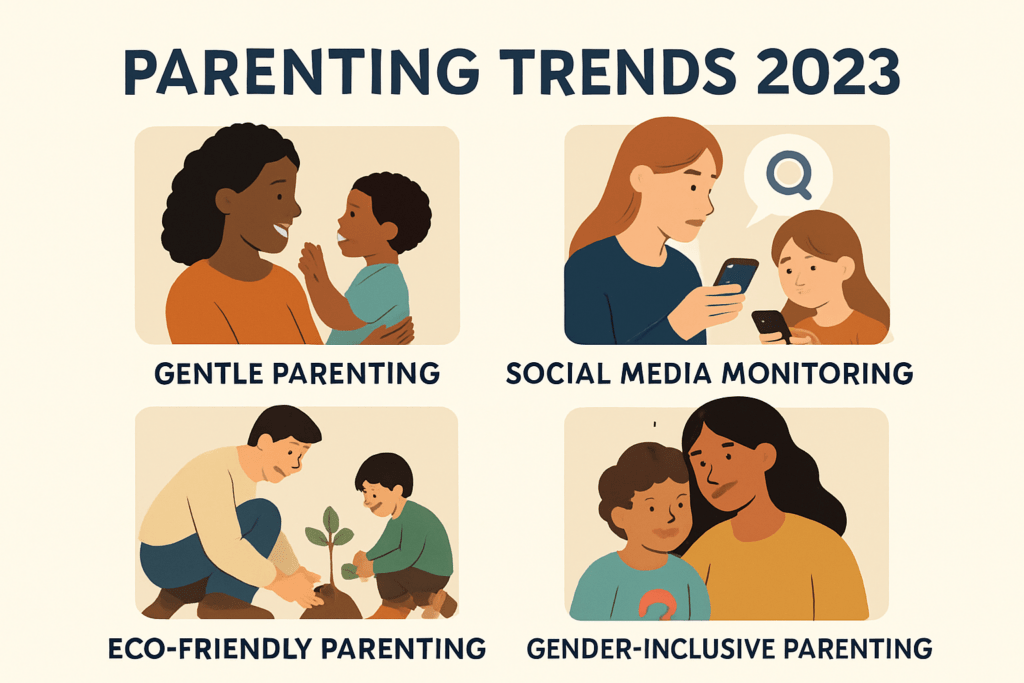Parenting Experts Share Tips for Managing Screen Time
- Introduce the challenge of kids and screens in today’s world.
- Emphasize why managing screen time is a top parenting concern.
- Briefly mention that advice is drawn from leading parenting experts.
- Set the expectation: readers will walk away with simple, actionable strategies.
What Happens After Winning Millions?
Winning a life-changing lottery jackpot is every player’s dream, but few are prepared for what comes next. The sudden influx of wealth can bring excitement, but also a wave of challenges. Many winners find themselves overwhelmed by financial decisions, from managing taxes to making smart investments. Some handle it well, while others struggle with reckless spending that drains their fortune faster than expected.
The Financial Reality of Winning
Many winners face critical financial decisions almost immediately:
- Taxes and Legal Issues
A large chunk of the winnings often goes to taxes, and failing to plan can lead to legal troubles. - Investing vs. Spending
Some winners hire financial advisors to ensure long-term security, while others spend impulsively without a plan. - Budgeting for the Future
Without proper money management, even the biggest jackpots can disappear quickly.
A Lifestyle Overhaul
A sudden fortune changes life in more ways than one:
- Luxury Purchases
Mansions, sports cars, and extravagant vacations become instantly affordable. - Social Pressure
Long-lost friends and distant relatives often reappear, expecting a share of the winnings. - Privacy Challenges
Some winners struggle with unwanted media attention and public scrutiny.
While some winners embrace their new wealth openly, others choose to live discreetly to avoid pressure and expectations.
Giving Back and Creating a Legacy
For some, wealth is not just about personal luxury—it’s an opportunity to make a difference. Many winners choose to:
- Donate to charities and community projects
- Fund scholarships or support education initiatives
- Invest in businesses that create jobs and opportunities
Some lottery winners go from players to philanthropists, proving that wealth can be used to leave a lasting impact. However, not all stories end positively—many who fail to manage their winnings properly find themselves bankrupt within years.
Why Screen Time Management Is More Important Than Ever
Let’s be blunt—screen time is everywhere, and the stakes keep rising. Kids aren’t just zoning out with cartoons anymore; they’re gaming, chatting, scrolling, and even doing schoolwork on devices. Sure, screens can be educational or fun, but unchecked, they also bring a heap of headaches: distracted minds, late bedtimes, and sometimes a hit to real-life social skills. Parenting experts warn that attention spans are shrinking and face-to-face talk is getting rare.
The latest research connects high levels of screen use—especially social media—with more anxiety, depression, and trouble sleeping in kids and teens. The link isn’t simple, but the risk is real enough that experts everywhere—pediatricians, psychologists, tech execs who won’t even let their own kids use certain apps—are urging parents to take screen time management seriously.
The challenge? Tech changes fast. Apps your kid begs for today may be out tomorrow, replaced by something you’ve never heard of. Algorithms are getting slicker at keeping us all hooked. That’s why parents need to stay one step ahead, not just to solve problems after they pop up. Effective screen time management isn’t about banning all screens—it’s about being steady at the wheel, deciding what’s healthy for your kid, and adjusting as the tech (and your child) grows. In this landscape, keeping screen use in check isn’t optional. It’s just smart parenting.
Setting Ground Rules: Start with Clear, Age-Appropriate Boundaries
You don’t have to throw all the devices out the window, but setting boundaries is non-negotiable. Start by laying out a simple daily routine that includes some screen time—after all, homework assignments and catching up with friends often happen on screens now—but won’t make devices the centerpiece of your kid’s day. Keep it specific: for example, “You can use your tablet after homework, up to 45 minutes, then it’s time for dinner.” Kids on the younger end (think preschool and early elementary) need shorter sessions and more hands-on supervision. Teens might earn more flexibility, but those boundaries still matter.
Consistency keeps the chaos in check, but don’t be afraid to tweak the rules as schedules shift or your kid grows. And here’s the kicker: involve kids in crafting these rules. Ask what feels fair, listen (even if you want to roll your eyes at their requests), and explain the “why” behind each guideline. Shared agreements mean fewer battles down the line.
Introducing “tech breaks” can be a game-changer. Just call them what they are—moments to recharge your brain without a glowing screen. Designate a couple of device-free zones—dinnertime and bedrooms are classics, but birthday parties or game nights are fair game, too. The point isn’t to punish, but to create space for real connection, better sleep, and a reminder that life happens off-screen as well as on.
Digital Balance Tips for the Whole Family
The quickest way to encourage healthy screen time habits? Show, don’t just tell. Kids clock what you do, not just what you say, so if your nose is always in a phone, they’ll follow suit. Try a few easy swaps. Instead of movies every Friday, sometimes reach for a board game or head outside for a walk. Book stacks and art supplies on the coffee table quietly invite everyone to unplug together.
Keep it simple: take stock of how you feel after scrolling. Is everyone cranky, antsy, or tired? Name it out loud. Mindfulness doesn’t need to be fancy meditation—just noticing “Hey, we’re all staring at screens and feeling worn out. Let’s hit pause for a bit.” Even small breaks help reset energy and bring people back together.
Family tech balance isn’t just about cutting back. It’s about trading one kind of connection for another—real-world, in-person stuff that builds the good kind of memories. If you’re curious about making home life greener, too, check out our eco-conscious parenting ideas and tips. Tech is great, but sometimes the best moments happen when you put it aside.
Technology Oversight Without Micromanaging
Let’s be real: You can’t watch every tap and swipe, and nobody wants to play digital policeman 24/7. Here’s where technology oversight comes in—not as a power move, but as a simple safety net. Use the tools your devices already have. Most phones and tablets offer parental controls you can set up in a few minutes. There are also monitoring apps that help you keep tabs on usage, set time limits, or block questionable sites.
But oversight isn’t just about limits and locks. The smartest move? Talk to your kids. Let them know why you care about what they do online. Share your own screen habits—the good, the bad, the embarrassing. Make tech use a two-way conversation instead of a secret mission. Teach them how to make solid choices, not just how to dodge restrictions.
Trust matters here. If something goes sideways, you want your kid to bring it to you—not hide it because they feel policed. Technology oversight should look more like coaching than snooping. Keep it honest, keep it regular, and leave the spying to action movies.
What Happens After Winning Millions?
Winning a life-changing lottery jackpot is every player’s dream, but few are prepared for what comes next. The sudden influx of wealth can bring excitement but also a wave of challenges. Here is a look at the different aspects winners may face:
The Financial Reality of Winning
Immediate Financial Decisions
- Handling Taxes: A substantial portion of the winnings often goes to taxes. Lack of planning can lead to legal issues.
- Investments vs. Spending: Some winners hire financial advisors to secure their future, while others engage in reckless spending.
- Long-term Budgeting: Without proper money management, even the biggest jackpots can quickly diminish.
A Lifestyle Overhaul
Luxury and Lifestyle Changes
- Extravagant Purchases: Mansions, exotic cars, and luxurious vacations suddenly become accessible.
- Social Dynamics: Friends and distant relatives may surface, expecting a share of the winnings.
- Maintaining Privacy: Some winners grapple with unwanted media attention and public exposure.
While some embrace luxury, others opt for a lower-profile lifestyle to avoid pressure and attention.
Giving Back and Creating a Legacy
Philanthropy and Community Impact
- Charitable Contributions: Winners often donate to charities and fund community projects.
- Educational Support: Many choose to sponsor scholarships or launch educational initiatives.
- Business Ventures: Investing in businesses to foster job creation and economic opportunities.
These choices reflect the winners’ broader impact, transforming from players to philanthropists. Ultimately, how they manage their newfound riches not only affects their future but also the legacy they leave behind. For those who neglect proper planning, the story may turn into a cautionary tale of financial downfall.
What Happens After Winning Millions?
Winning a life-changing lottery jackpot is every player’s dream, but few are prepared for what comes next. The sudden influx of wealth can bring excitement, but also a wave of challenges. Many winners find themselves overwhelmed by financial decisions, from managing taxes to making smart investments. Some handle it well, while others struggle with reckless spending that drains their fortune faster than expected.
The Financial Reality of Winning
Many winners face critical financial decisions almost immediately:
- Taxes and Legal Issues
- A large chunk of the winnings often goes to taxes, and failing to plan can lead to legal troubles.
- Investing vs. Spending
- Some winners hire financial advisors to ensure long-term security, while others spend impulsively without a plan.
- Budgeting for the Future
- Without proper money management, even the biggest jackpots can disappear quickly.
A Lifestyle Overhaul
A sudden fortune changes life in more ways than one:
- Luxury Purchases
- Mansions, sports cars, and extravagant vacations become instantly affordable.
- Social Pressure
- Long-lost friends and distant relatives often reappear, expecting a share of the winnings.
- Privacy Challenges
- Some winners struggle with unwanted media attention and public scrutiny.
While some winners embrace their new wealth openly, others choose to live discreetly to avoid pressure and expectations.
Giving Back and Creating a Legacy
For some, wealth is not just about personal luxury—it’s an opportunity to make a difference. Many winners choose to:
- Donate to Charities and Community Projects
- Initiatives that benefit society and support various causes can become major priorities.
- Fund Scholarships or Support Education Initiatives
- Helping to educate future generations can be a meaningful way to invest in the community.
- Invest in Businesses
- Creating jobs and opportunities in struggling areas can make economic impacts.
Some lottery winners go from players to philanthropists, proving that wealth can be used to leave a lasting impact. However, not all stories end positively—many who fail to manage their winnings properly find themselves bankrupt within years.


 Family Activities & Lifestyle Contributor
Family Activities & Lifestyle Contributor
